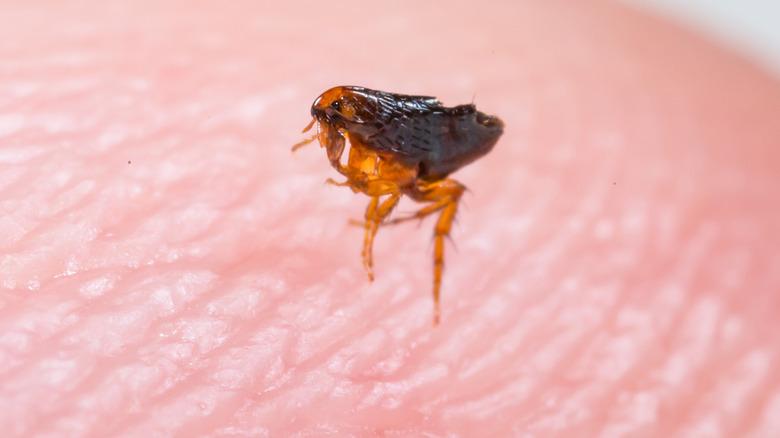How To Repel Fleas And Ticks Using One Natural Fragrance They Can't Stand
We may receive a commission on purchases made from links.
Warmer weather brings a host of lovely things we look forward to all winter, such as flowers, grilling season, and more time with friends and family outdoors. Unfortunately, it also brings out some unwelcome guests: fleas and ticks. There are tons of products on the market that aim to protect from fleas and ticks, but some are laden with chemicals and can be harmful. Fortunately, there is a natural scent that is safe but fleas and ticks absolutely hate: lemongrass.
More than just a nuisance, these little critters can cause some real problems. Both are tiny insects that bite people and animals and can carry a variety of unpleasant diseases. Fleas can carry "the plague" (literally), Cat Scratch Fever, and tapeworms. According to the U.S. Centers for Disease Control and Prevention (CDC), ticks carry a laundry list of diseases, but one of the most concerning is Lyme Disease, a disease that can spread to the heart, joints, and nervous system. Nearly 500,000 people in the United States contract Lyme Disease every year. But here is how you may be able to help keep them away from you with the help of lemongrass.
Use lemongrass oil to repel fleas and ticks
Products with DEET are widely used to protect against tick bites, but lemongrass provides a safer and more environmentally-friendly option that is nearly as effective. This powerhouse herb has many uses as medicine and aromatherapy, and its citrusy oil is often used in soaps and lotions. A few drops of lemongrass essential oil can be added to a diffuser and placed on the patio as an effective mosquito repellent. Organic Aromas offers a recipe for a lotion that combines lemongrass with citronella, lavender and eucalyptus — all equally unfriendly to insects.
Lemongrass oil by itself is great as a flea and tick repellent, too. Ticks, in particular, rely heavily on their sense of smell to guide them to their next host for a tasty meal, according to Acadia University. Research has shown that the smell of lemongrass masks the scent of a host. The scent is disorienting and repellent to a tick, so a few drops of lemongrass essential oil on your clothing significantly reduces the risk of a bite. Because it's natural, it is much safer for you and the environment than DEET, which the Environmental Protection Agency (EPA) said uses synthetic chemicals to achieve the same effect.
As a plant, lemongrass won't keep the bugs off your patio – it needs to be in essential oil form and diffused into the air to achieve that. But with its long leaves resembling pampas grass (but much less invasive) and ease of cultivation, grow lemongrass as an attractive addition to landscapes. Once fully grown, try extracting lemongrass and using the oil to make this DIY lemongrass all-natural spray cleaner, or clean your carpets with white vinegar and a few drops of lemongrass oil.
It is important to note that, per the ASPCA, lemongrass is considered toxic to dogs, cats, and horses. Please consult your veterinarian before using lemongrass as a flea and tick repellent around your pets.

